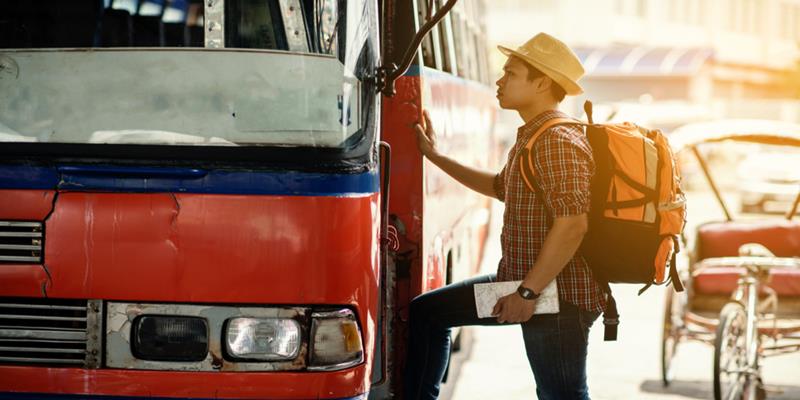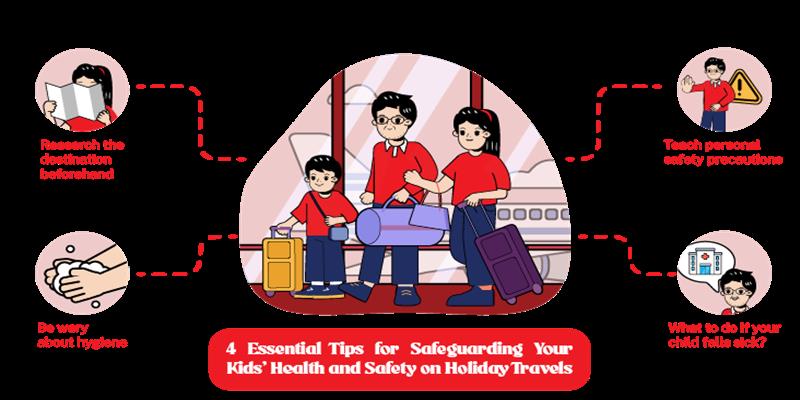Child-friendly travel can strengthen family bonds and create lasting memories. Despite the excitement of exploring new places, children's safety must be prioritized. Whether traveling for a weekend or abroad, child safety is paramount. This article discusses child welfare during travel and provides practical tips for parents who want to travel with their kids. Child welfare while traveling includes ensuring safety and security in unfamiliar environments and promoting children's health and well-being.
Travel offers children valuable opportunities to learn, grow, and expand their horizons, so parents must provide educational and emotional support. Parents prioritizing child welfare can create memorable, enriching travel experiences that foster curiosity, resilience, and family togetherness. Let's explore why child welfare matters when traveling and how parents can maximize their adventures with their kids.
Consider these points about child welfare while planning a trip:
Security And Safety
A primary reason child welfare is important during travel is to ensure the safety and security of children in unfamiliar environments. This is one of the primary reasons why child welfare is important. When children travel, they are frequently exposed to new places, cultures, and experiences, all of which contain the potential to present them with a variety of unique challenges and risks. Parents can take preventative measures to reduce the impact of these dangers and establish a safe and secure environment for their children if they prioritize their children's welfare.
Physical And Mental Wellness
It is essential to maintain children's health and well-being while traveling to provide them with an overall sense of happiness and enjoyment of the experience. Children can experience various climates, cuisines, and environments through travel, which can affect their physical and emotional well-being. When planning and embarking on trips with their children, parents should be mindful of various factors, including food and water safety, the requirements for vaccinations, and the availability of medical care.
Education And Enrichment
Children have the opportunity to widen their horizons and develop a sense of curiosity about the world through the experience of traveling, which provides them with valuable learning and development opportunities. Providing children with the opportunity to experience new cultures, languages, and traditions directly can facilitate the development of empathy and cultural awareness and enrich their understanding of diversity. Parents can provide their children with meaningful educational experiences that will inspire and empower them if they prioritize their children's welfare while traveling.
Support On An Emotional Level
Traveling can be an overwhelming experience for children, particularly when attempting to navigate unfamiliar environments and routines. To assist children in experiencing a sense of safety, security, and comfort while traveling, it is essential to provide them with emotional support and reassurance. Parents need to maintain open lines of communication with their children, address any worries or fears their children may have, and cultivate an atmosphere that fosters trust and bonds.
Accommodation
Finding the perfect lodging for a family vacation is crucial. You want a family-friendly, safe location. Find kid-friendly hotels and resorts. Playgrounds, small pools, and planned activities like arts & crafts or movie evenings are common at these facilities. Consider the room type you'll require. Some hotels provide family rooms or suites with more space. Check whether they have cribs or rollaway beds if needed.
Reviewing other families' stays helps when booking. They can help you understand what to anticipate and whether it's right for your family. The location of the lodging is also important. Stay secure near the sights you wish to see with restaurants and stores nearby. Finally, consider the hotel's facilities. A kitchenette may help prepare snacks and meals for picky eaters, and washing facilities can rescue the day when traveling with messy youngsters.
Transportation

Planning transportation is crucial when traveling with kids. You want everyone to travel pleasantly and securely. When driving, secure your kids in car seats or seat belts. Include food, beverages, and toys to keep children amused throughout the travelschedule breaks so everyone may stretch and use the restroom. Avoid lengthy layovers and bother by booking direct flights. Bring food, toys, and a tablet or phone with games or movies to entertain your kids during the flight.
Remember to bring passports and birth certificates for each kid. Public transit may be enjoyable and thrilling, but you must watch your kids and hold their hands in busy places. Teach children to avoid platform edges and wait for the bus or train to halt before getting on or off. Planning for the unexpected is smart, no matter how you travel.
Practical Tips For Child Safety While Traveling

Planning ahead and thinking about the kids' health, safety, and well-being when traveling with them is important. To ensure the safety of their children when on the road, parents should follow these guidelines:
- Plan Ahead: Find lodgings, attractions, and services suitable for children by researching your intended trip extensively. Think about things like the accessibility of healthcare, the security of the area, and the presence of daycare centers.
- Pack Wisely: Include your child's prescriptions, first aid kit, sunscreen, bug repellent, and any other goods they may need for comfort. Ensure your child is well-hydrated and nourished for the journey by bringing lots of water and snacks.
- Establish Routines: Help your youngster feel more at ease and secure when traveling by sticking to familiar habits and timetables. Maintain regular eating, sleeping, and resting schedules to reduce weariness and interruptions.
- Stay Vigilant: Airports, train stations, and tourist attractions are examples of crowded or unfamiliar places where you should keep a tight watch on your youngster. Ensure your child knows how to keep safe by teaching them to stay near you, avoid talking to strangers, and respect traffic laws.
- Use Child Safety Gear: Put your child in a booster seat or car seat that is suitable for their height, weight, and age before you go out on a road trip. Bring a child safety strap in case of takeoff, landing, or turbulence if you're flying.
- Please seek Medical Advice: Before going, it is important to consult with your child's pediatrician. This is particularly true if your child has pre existing problems or needs specific prescriptions or vaccines. Always have a copy of your child's insurance information and medical documents.
- Stay Flexible: Travelers should always be ready to deal with the unexpected, whether a flight delay, bad weather, or an unforeseen illness. Prioritize your child well-being by remaining calm, adaptable, and patient as you seek answers.
- Seek Support: Ask other visitors or locals for recommendations, help, and advice on parenting groups, travel forums, and other online communities.
Conclusion
When traveling, it is crucial to prioritize children's safety, health, and well-being, especially when exposed to new and different situations. When parents put their children's well-being first, they may plan exciting vacations that will last a lifetime and encourage development, learning, and family unity. When you put in the time and effort to prepare and stay vigilant, traveling with children can be an exciting and fulfilling experience for everyone.




